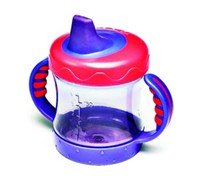Advertisement
Grab your lab coat. Let's get started
Welcome!
Welcome!
Create an account below to get 6 C&EN articles per month, receive newsletters and more - all free.
It seems this is your first time logging in online. Please enter the following information to continue.
As an ACS member you automatically get access to this site. All we need is few more details to create your reading experience.
Not you? Sign in with a different account.
Not you? Sign in with a different account.
ERROR 1
ERROR 1
ERROR 2
ERROR 2
ERROR 2
ERROR 2
ERROR 2
Password and Confirm password must match.
If you have an ACS member number, please enter it here so we can link this account to your membership. (optional)
ERROR 2
ACS values your privacy. By submitting your information, you are gaining access to C&EN and subscribing to our weekly newsletter. We use the information you provide to make your reading experience better, and we will never sell your data to third party members.
Environment
California Keeps BPA Off Toxics List
Independent panel finds lack of scientific evidence of harm to humans
by Britt E. Erickson
July 16, 2009
A California science panel voted unanimously on July 15 not to add the controversial plastics chemical bisphenol A (BPA), an endocrine disruptor, to Proposition 65—the state's list of chemicals that are known to cause cancer, birth defects, or reproductive harm.
The governor-appointed panel, made up of seven independent physicians, concluded that although there is some scientific evidence that BPA is harmful to laboratory animals, there is not enough evidence that BPA is harmful to humans to justify adding it to the list.
The decision was welcomed by the American Chemistry Council (ACC), an industry group that represents BPA manufacturers. The panel's conclusion "is consistent with the consensus view of regulatory bodies around the world on the safety of bisphenol A," Steven G. Hentges, executive director of ACC's Polycarbonate/BPA Global Group, said in a statement.
But environmental and consumer advocacy groups say the action will do little to stop the momentum to ban BPA in baby bottles and food packaging that has been building for more than a year. "Manufacturers are rapidly developing safer alternatives to satisfy consumer demand for baby and beverage bottles, infant formula, and can linings free of this dangerous chemical," Bill Allayaud, director of government affairs for the Environmental Working Group in California, testified at the panel's meeting.
In response to this week's vote, the Natural Resources Defense Council filed a legal petition with the California Environmental Protection Agency, requesting that the agency reconsider the decision. The environmental group pointed out that the panel ignored a 2008 report from the National Toxicology Program, which concluded that current levels of exposure to BPA are of "some concern" for developmental and behavioral effects in fetuses, infants, and children.
Despite the ruling, legislation to ban BPA in baby bottles is pending in California, with a vote expected in the Assembly this fall. Other states, such as Connecticut and Minnesota have already passed such bans. At the national level, a bill that would ban BPA in food and beverage containers is working its way through the House of Representatives as part of a larger food safety bill, and the Food & Drug Administration has agreed to reevaluate the safety of BPA. A decision from FDA is expected in late summer or early fall.




Join the conversation
Contact the reporter
Submit a Letter to the Editor for publication
Engage with us on Twitter